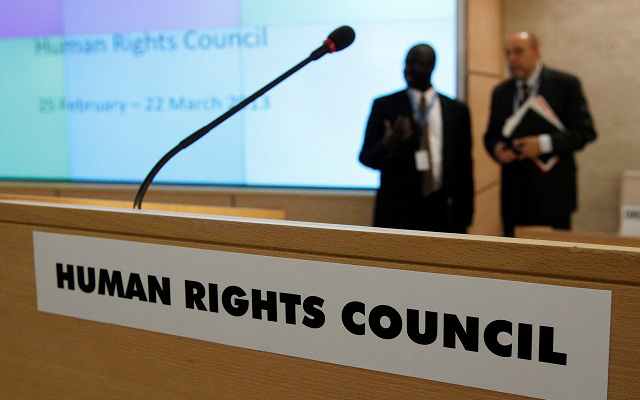On Friday 28 October 2016, the 193 member states of the United Nations cast their ballots in elections for the Human Rights Council, and 152 states decided that Saudi Arabia was fit to occupy a seat. The elections were for 14 of the Council’s 47 seats, one of which Saudi will occupy as a representative of the Asia bloc. This marks the country’s fourth term on the Council and represents an insult to the Council’s mission to “strengthen the promotion and protection of human rights around the globe and address situations of human rights violations.”
Saudi Arabia’s re-election comes despite the Saudi government’s repeated demonstration of flagrant disregard for international human rights norms and standards. The country is among the least free countries according to Freedom House, and Amnesty International and Human Rights Watch consistently document comprehensive human rights abuses in a wide range of areas. These include restrictions on freedom of expression, the use of torture and capital punishment, and frequent executions.
One of the issues they highlight is Saudi Arabia’s restrictions on freedom of expression. The Saudi government sees any action that could undermine the political rule of the royal family as threatening. To this end, it criminalizes calls for government reform, protests, and expanded political freedoms. State power also rests upon its highly conservative Wahhabi religious doctrine which serves to buttress the political establishment. Thus, the state sees even slight or implicit criticism of the country’s religious policies and official version of religion as potentially dangerous. For example, Saudi officials imprisoned Mikhlif al-Shammari in November 2014 for allegedly “stirring up public opinion about ‘co-existence between’ Sunni and Shia Muslims,” among other charges. This charge is significant because the country’s Wahhabi doctrine supports widespread anti-Shia discrimination.
The Saudi government also operates a judicial system that is characterized by the lack of a rule of law and the absence of due process. Within this system, there has been a marked increase in the application of capital punishment and executions in the last several years. Saudi Arabia regularly ranks as one of the top executioners in the world, and in 2015, authorities executed 158 people, the most in 21 years. As of 27 October 2016, it has executed 137 people. 57 prisoners currently face execution of whom ten are minors. Many of these prisoners’ trials were marked by severe judicial irregularities, including torture and coerced confessions in some cases. Among these prisoners are three young men, Ali al-Nimr, Abdullah al-Zaher, and Dawood al-Marhoon, who were arrested as minors and tortured until they confessed.
In addition to domestic abuses, Saudi Arabia leads a coalition of Arab states in an intervention into the conflict in Yemen. The coalition’s entry into the conflict in early 2015 has led to numerous human rights violations. The coalition’s airstrikes have repeatedly struck civilian targets and the United Nations has stated that the Saudi-led coalition is responsible for 60 percent of all civilian deaths in the country. Among the civilian targets struck by the coalition are a refugee camp, a religious school, a center for the blind, weddings, Médecins Sans Frontières (MSF) hospitals, and a funeral home.
Saudi Arabia has repeatedly demonstrated a flagrant disregard for human rights both domestically and internationally, and the government has ignored international recommendations for reform. As Saudi Arabia does not respect human rights standards, it cannot be expected to uphold the standards in other countries and contexts. Because of this, Saudi Arabia’s re-election to the Human Rights Council is an insult to the Council as the institution charged with upholding these standards. In light of this, states should move to suspend Saudi Arabia from its seat on the Council.
Tyler Pry is the Sheikh Nimr al-Nimr Advocacy Fellow at ADHRB





